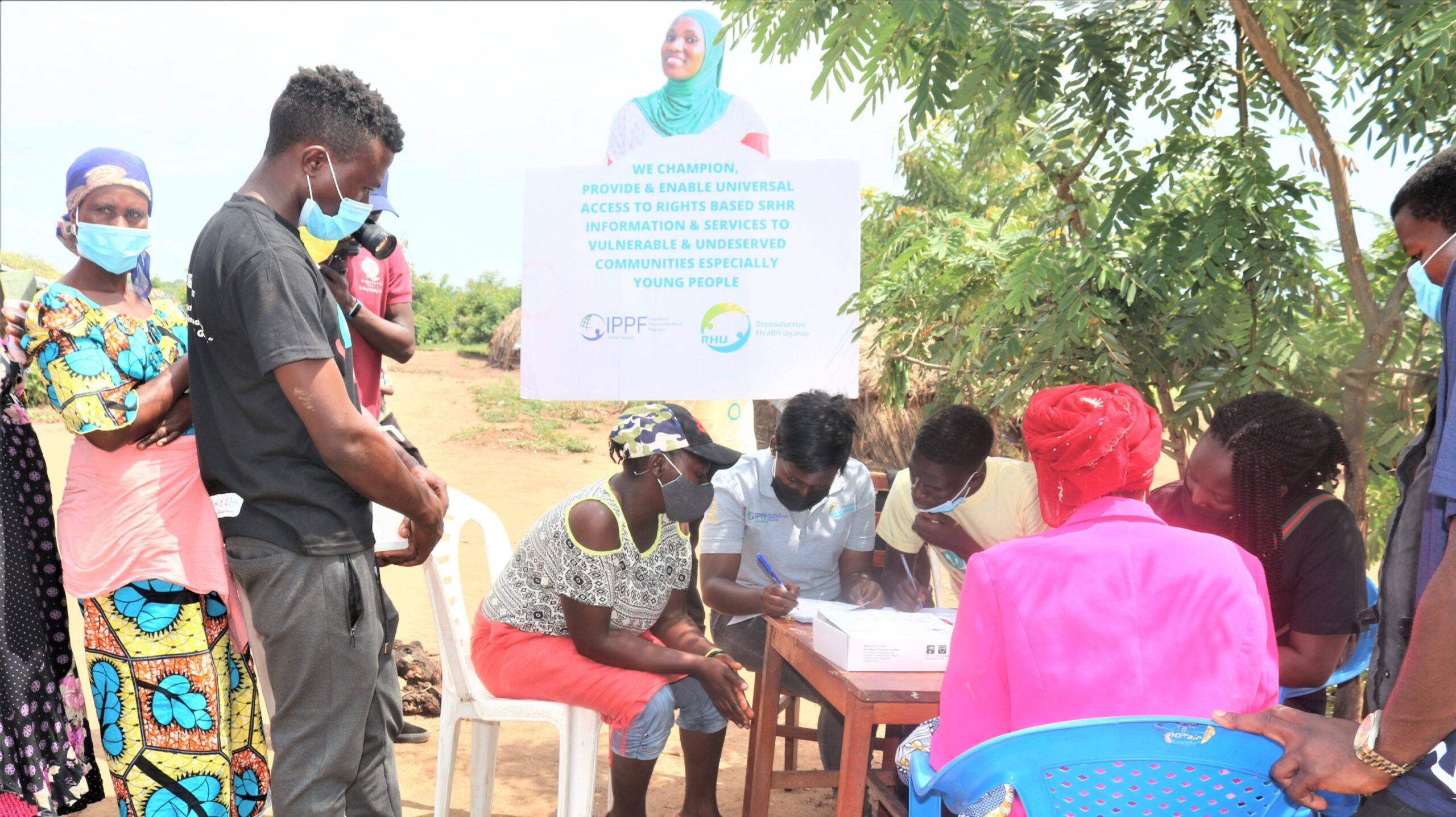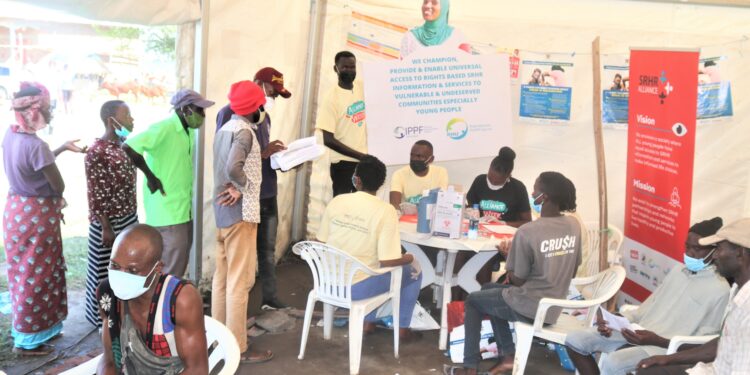By Esther Nakitto
In the Makindye and Central divisions of Kampala city, Reproductive Health Uganda (RHU) has increased its outreach on safe sex and undesired pregnancies.
From August 2020 to November 2021, according to Mugaya Nasulu, service provider RHU St. Balikuddembe, they conducted over 120 outreaches in Kampala metropolitan, reaching a total of 36,000 youth with a wide range of SRH services such as general counseling, HIV screening and testing, family planning, and many others through the Danish-funded project.
Ginette Onokoko,19 , says she had an unforeseen pregnancy at the age of 16 owing to a lack of sexual and reproductive health information, but she was able to avoid another unintended pregnancy by using a three-year contraceptive, and she also encourages other young people to use the services as well.

After multiple unprotected sexual encounters with several men, one of our clients who tested positive for HIV stated that she was relieved to learn her status for the first time, and that while the news wasn’t ideal, she was at least able to learn her status and was linked to long-term care.
RHU has been able to reach out to the youth and promote uptake of family planning among the sexually active youth, which in turn reduces unintended pregnancies and, over time, maternal mortality, thanks to these outreaches funded by the Danish government, according to Annet Kyarimpa, Manager of Safe Motherhood at Reproductive Health Uganda.
Nearly 80 per cent of Ugandans say teenage pregnancy has become a bigger problem as the country battles the coronavirus pandemic. This is according to Twaweza’s Sauti Za Wanainchi survey which was conducted in the areas of Kampala, Kyotera and Tororo.
The findings of the survey released by Twaweza in the presence of the Health Ministry officials indicate that eight out of ten citizens (79 per cent) say teen pregnancy has become a bigger problem during the Coronavirus pandemic and half say physical (51 per cent), emotional (51 per cent) and sexual (46 per cent) violence have gotten worse.
Marie Nanyanzi, a senior Program officer in charge of the Twaweza Sauti Za Wanainchi survey says citizens are also reporting an increase in alcohol consumption (58 per cent.) and drug abuse (49 per cent).
According to Nanyanzi, the data being shared were collected nationally in December 2020 from 1,590 respondents and from 768 residents of Kampala, 639 residents of Kyotera and 622 residents of Tororo in June 2021.
Do you have a story in your community or an opinion to share with us: Email us at editorial@watchdoguganda.com













